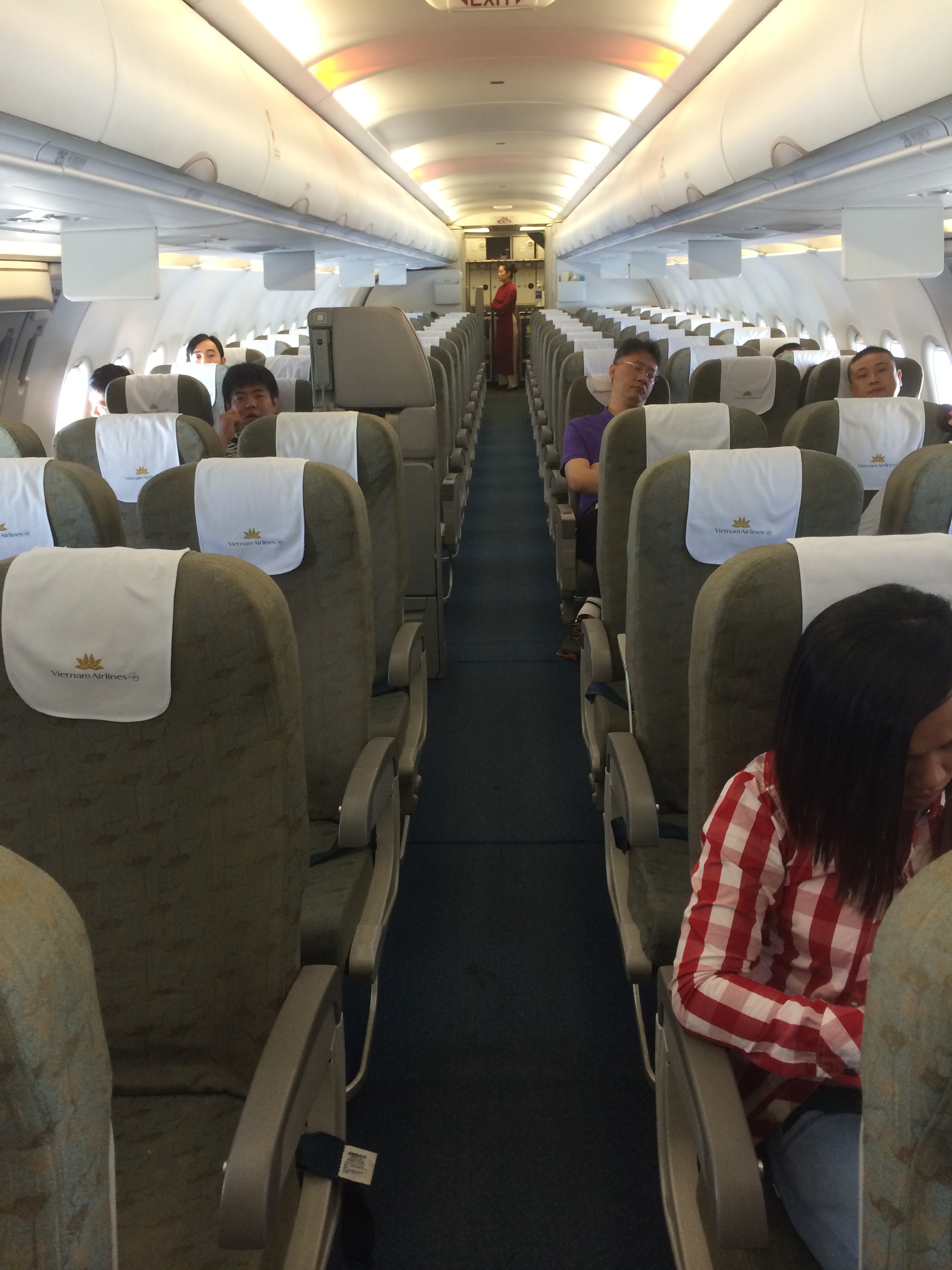
By Anna Russo
There were no more than twenty seats filled as the lumbering Boeing 777 left the tarmac at Ho Chi Minh City airport. The flight attendants had conveniently sat everyone in the center of the plane, leaving both the front and back completely empty to localize beverage service. No one acted as if anything was strange: when I, the only person to attempt to document the phenomenon of an under booked flight, took out my camera, I was reprimanded by a flight attendant who thought I was snapping a photo of her.
My flight to Guangzhou from Ho Chi Minh City occurred just a few days after over three thousand Chinese were evacuated from Vietnam following anti-Chinese riots and factory burnings. It seemed to be a perfect ending to our reporting trip: one more piece of the Sino-Vietnamese puzzle that had characterized so many of our conversations and observations. Still not quite ready to retire my reporter’s cap for the summer, I pulled one of the flight attendants aside, “Why so empty?” I asked with faux naiveté.
“The relationship is not so good now between China and Vietnam,” she responded before proceeding down the aisle.
In the month since arriving in China, I have heard nothing beyond that line, regardless of my hinting, prodding, or instigation. When I presented my careful selected Vietnamese gifts to Chinese friends, they were met with genuine wide smiles and exclamations of ni tai ke qi, you are too polite, foiling my carefully devised plan to pry out anti-Vietnamese sentiment.
I mention that I travelled in Vietnam to nearly every person I meet. Everyone responds in one of two ways: either with a face contorted in confusion at my mispronounced tones and mistake it for a similar-sounding province in Southwestern China or a simple nod and smile at a young American girl who is probably doing too much travelling for her own good. Again, my weak attempts at Chinese undercover journalism failed to elicit, even once, a mention of the South China Sea.
My conversations with taxi drivers, middle school parents, random tourists at the Forbidden City and my boss certainly don’t comprise a data set to satisfy any polling experts. I may just be finding myself in circles that do not concern themselves with foreign policy, or people may just not want to engage in political conversation. However, while sitting on that empty plane flying to Guangzhou, reading the People’s Daily, China’s most popular newspaper, it was not until page 21 that Vietnam was finally mentioned in a short, side column explaining the evacuation.
This starkly contrasted with our experience in Vietnam, where it felt like everyone and everything was buzzing about China. People were changing their Facebook avatars to Vietnamese flags to display national solidarity, newspapers were reporting headlining stories, and I was getting daily emails from my mother making sure I was safe from all the chaos that was being reported in the American media. But in China, those conversations were as lacking as the passengers on my Boeing 777.

Exactly what light this shines on the South China Sea disputes I still am not quite sure. Maybe Chinese citizens are only concerned with (or only exposed to) domestic issues, a hypothesis made stronger with Xi Jinping’s huge “China Dream” campaign posters on every street corner and subway stop in Beijing, propaganda advocating for domestic equality, fairness, and civil society. Or perhaps it is just China’s form of bullying diplomacy, throwing a county like Vietnam into popular action without even creating a domestic ripple in big, powerful China. We can only wait and see if Vietnam will stand up for itself, but from this side of the South China Sea, it feels like Vietnam is simply fighting against a wall.